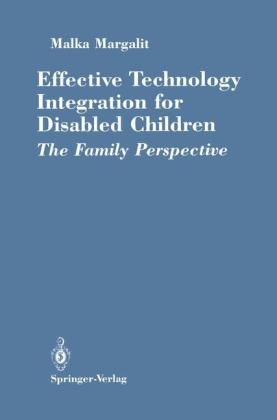
Effective Technology Integration for Disabled Children
Springer-Verlag New York Inc.
978-0-387-97256-5 (ISBN)
- Titel ist leider vergriffen;
keine Neuauflage - Artikel merken
Section I Effective Technology Integration.- 1 An Information Processing Model for Intervention.- Processing deficiencies.- Basic learning principles.- Training programs.- The disabled as a novice problem solver analogy.- General and domain-specific strategies.- The acquisition of metacognition.- The optimal learning environment.- Conclusions.- 2 Computer Games and Problem Solving.- Leisure activity.- Problem solving instruction.- Motivational and affective aspects.- Survey of game and simulation research.- Conclusions.- 3 Drill-and-Practice Programs.- Controlled and automatic processing.- Survey of drill-and-practice research.- Fluency in mathematics.- Fluency in reading.- Fluency in spelling.- Conclusions.- 4 Word Processing and Writing Skills.- Writing performance.- The value of writing at home.- Survey of handwriting and word processing research.- Procedural writing instruction.- Prewriting activities.- Composing activities.- Editing and revising the composition.- Individual differences and specific facilities.- Conclusions.- Section II Families: An Ecological Model.- 5 Familial Stress and Resources.- Stress.- Stress and resource interrelations.- Personality variables.- Social support.- Individual differences in parental needs.- Support and well-being.- Conclusions.- 6 Family Climate.- Family environment and child adjustment.- Climate in families with a disabled child.- Families living in the kibbutz environment.- Conclusions.- 7 Fathers' and Mothers' Roles in the Family.- Parental response as a function of genderdifferences.- The personal growth perspective.- Development of the father's unique role.- Conclusions.- 8 Empowering Families: Effective Interventions.- Empowerment.- Coping strategies.- Conclusions.- Section III The Entrance of Computers into Families.- 9 Parental Expectations.- Cognitive appraisal of parental stress.- Expectations from computers.- Sex roles.- Individual differences.- Home-school connection.- Conclusions.- 10 Bringing the Computer Home.- The diffusion of innovations.- Decision making: Purchase.- Computer usages in the home.- Location.- Software usage by various family members.- Parental characteristics as technology users.- Family member computer interactions.- Conclusions.- 11 Parental Support of Children's Home-Computing.- Support of home-computing.- Planned support.- Shared interests.- Supportive family climate.- Parents as tutors.- Characteristics of the partners.- Situational contexts.- Objections and criticisms.- Parents as tutors: An experiment.- Conclusions.- 12 Case Study: Danny R..- Danny's diagnosis and referral.- The family system.- Intervention goals.- The home-computing environment.- Training principles and description.- Results.- Conclusions.- Section IV Epilogue: Disabilities, Technology, and Families.- 13 Summary and Future Directions.- The parent empowerment model.- Future directions.- References.- Author Index.
| Zusatzinfo | biography |
|---|---|
| Verlagsort | New York, NY |
| Sprache | englisch |
| Gewicht | 525 g |
| Themenwelt | Geisteswissenschaften ► Psychologie ► Entwicklungspsychologie |
| Medizin / Pharmazie ► Medizinische Fachgebiete ► Neurologie | |
| Medizin / Pharmazie ► Physiotherapie / Ergotherapie ► Rehabilitation | |
| Sozialwissenschaften ► Pädagogik | |
| Sozialwissenschaften ► Soziologie ► Mikrosoziologie | |
| ISBN-10 | 0-387-97256-0 / 0387972560 |
| ISBN-13 | 978-0-387-97256-5 / 9780387972565 |
| Zustand | Neuware |
| Haben Sie eine Frage zum Produkt? |
aus dem Bereich


